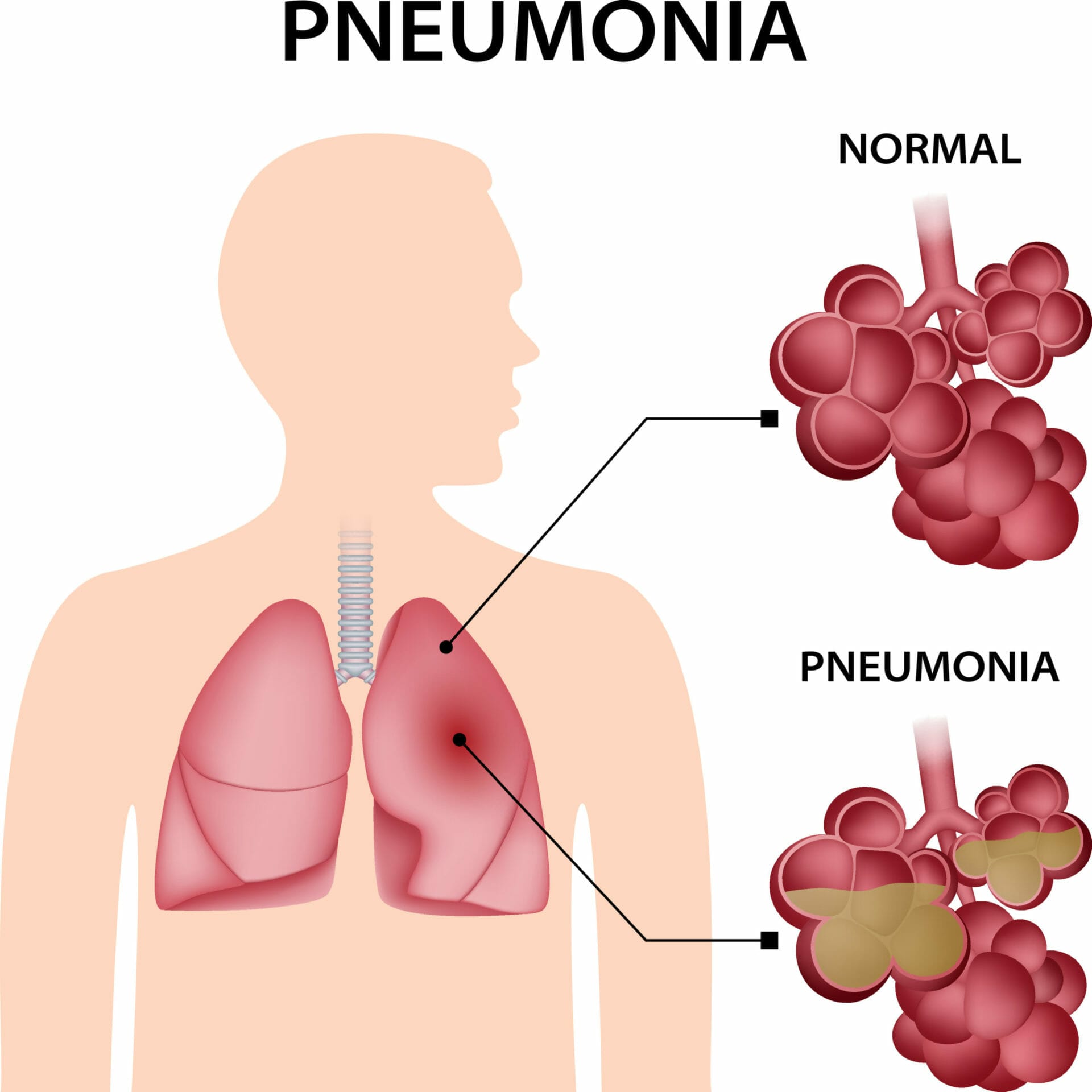Pneumonia
What is pneumonia?
Pneumonia is an infection which involves the inflammation of the air sacs. This can occur in one or both lungs. Pus or fluid accumulates in the air sacs, which causes a cough with pus or phlegm. Difficulty breathing and chills can also be experienced.
The infection varies in seriousness from being mild to severe and even life threatening. Pneumonia is considered most serious when it affects people with underlying health conditions, young children, or people over the age of 65.
Symptoms of pneumonia
Pneumonia symptoms vary from person to person, depending on how the infection has been caused, and its severity. A person's state of health and age can also be factors.
Mild symptoms of pneumonia are comparable to a flu or cold, but typically last longer. Common pneumonia symptoms include a cough which can produce phlegm; chest pain when breathing; chest pain when coughing; fever; fatigue; shaking and sweating; breathlessness; vomiting; nausea; diarrhoea; a low body temperature; and confusion or changes to mental state (for over 65s).
Symptoms of the infection may be hard to detect with babies and infants. When younger children do display signs they can include vomiting, coughing, fever, restlessness, breathlessness and difficulty eating.
Causes of pneumonia
Pneumonia is typically caused by germs such as bacteria and viruses that are carried in the air. The immune system can prevent germs from causing an infection, but in some cases the germs overpower the immune system, even in healthy individuals.
The various causes of pneumonia include bacteria, a common cause which can occur after a cold or flu, or on its own; bacteria-like organisms, causing a type of pneumonia which is typically milder and does not require treatment; fungi, which is common in those with weak immune systems or chronic health problems, or people who have inhaled fungi which is found in soil; and viruses, including COVID-19, which can be the cause of a cold or flu that in turn causes pneumonia.
There are certain risk factors linked to pneumonia, including having a chronic disease; using a ventilator in hospital; having a weak immune system; and being a smoker.

Treatment options for pneumonia
Pneumonia treatment is typically focused on curing the infection and avoiding complications. In many cases, you can treat pneumonia at home with medication. Most symptoms can subside in a few days, although fatigue may last for longer.
Treatment recommended will depend on the severity of the infection, the infection type, your state of health, and your age.
Treatment options include medication, such as antibiotics to treat bacterial infections, pain killers such as aspirin and ibuprofen to relieve symptoms such as discomfort and fever, and cough medicine to relieve coughing and help to loosen fluid in the lungs.
Aside from medication, home remedies can include bed rest and ensuring hydration by drinking plenty of water. For severe cases of pneumonia, hospital treatment may be required.
If you have any questions about pneumonia, or would you like to book an appointment with London's leading lung consultant? Call Dr Amit Patel on 0208 341 3422.
